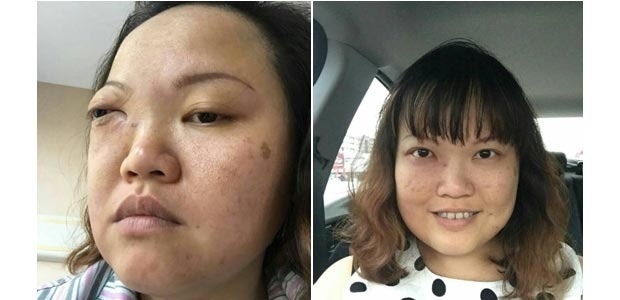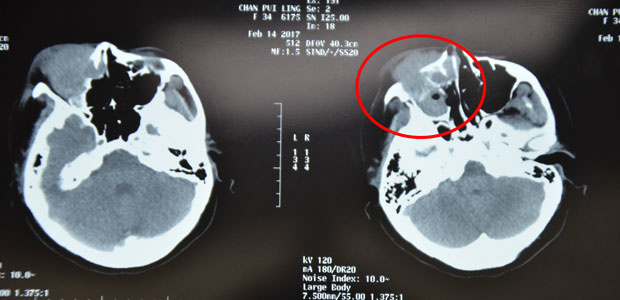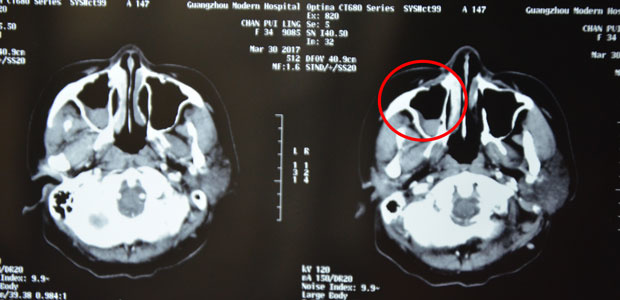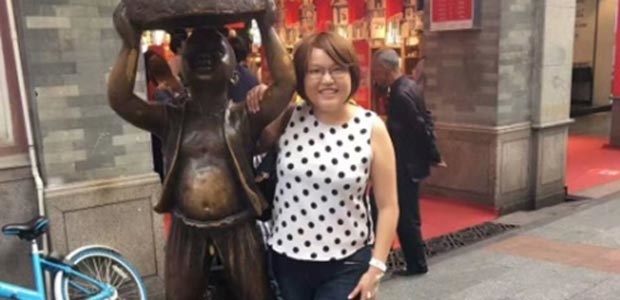Peng Xiaochi
Leading Expert of St. Stamford Modern Cancer Hospital Guangzhou
Member of Chinese Medical Association, Advocate of Minimally Invasive Treatment for Cancer and Multidisciplinary Comprehensive Treatments in China
Prof. Peng has participated in the researches and clinical practices of cancer for more than 20 years and specializes in minimally invasive therapy, endocrine therapy, molecular targeted treatment and multidisciplinary comprehensive therapy to name a few.
Testimonials: Medical work needs enduring ethics and devotion

Dr. Peng Xiaochi
Months ago, I treated a cancer patient from Malaysia. She is 34 years old underwent two surgical procedures on her face because of parotid gland cancer with her right eyeball nearly being cut out. However, this never stopped her determination to be healed nor she became depressed and stayed optimistic rather.
Facing two surgeries alone, she flew overseas to save her eye
When I first met Chan Pui Ling, she had a swollen and deformed face and protruding right eyeball. It was difficult to see her facial expression then. Later, I got to know that a 2*3 cm mass was discovered behind her right ear in November 2015, and she followed local doctor’s advice to treat it as an inflammation. But it was helpless and the mass continued to grow. She then had a biopsy and was diagnosed with parotid gland cancer.

Before treatment and after the first interventional therapy
In February 2016, she opted for surgery. Eventually, another mass was discovered near her right cervical trachea in March and where she did again the operation to remove it. The pathology revealed that her parotid gland had spread to her neck. In order not to worry her family, she kept it a secret to herself and faced two surgeries alone. “I haven't thought too much about it, I just thought that I should follow the suggestion of the doctor, and then I would be fine.”There came chemotherapy after her surgeries, and she continued going to work every day. But sometime later while having her therapy, due to the tremendous side effects, she could only sustain the half-day work.

In Feb. before treatment, masses filled her nasal and sinus cavities and her right eyeball was pressed to displace.

In March, after treatment, masses in her nasal and sinus cavities reduced and basically returned to a normal stage and her right eyeball back to the position.
In August, she finally finished her chemotherapy. October came and she found it hard for her right eyeball to move around and she sees double visions with her right eye. After diagnosis, it turned out that her parotid gland cancer had spread to the eye tissues. After given the protocol of right eyeball excision, Pui Ling started to feel frightened and told her family about her condition. Doctors honestly presented potential postoperative complications that it might lead to slight difficulties on self-care in effect of her vision changes. Her sister advised her to find other better treatments and that’s how I met Pui Ling.
Interventional therapy saved my eye
Pui Ling came here alone. She was a pretty young lady. When I first saw her, first came to my mind is how to comfort her and put her in confidence for following treatment in details. But she was much stronger than I ever thought.
Experts in Multidisciplinary Team (MDT) and I carefully discussed her case and we came to an agreement to conduct her interventional therapy. Interventional therapy is a mini-invasive therapy performed under the guidance of medical imaging equipments. Drugs are directly given to the tumor via arterial infusion, thus, the drug concentration of interventional therapy is 2-80 times higher than that of systemic chemotherapy. Interventional therapy kills cancer cells more effectively. After the first interventional therapy, in 3 days, tumor in Pui Ling’s right eye effectively shrank. Till the fourth interventional therapy, it was hard to see any abnormal on her face.

After the fourth interventional therapy, Pui Ling’s travel photo
During the treatment in St. Stamford Modern Cancer Hospital Guangzhou, Pui Ling was very active. Once she got free time she would talk with doctors and nurses, and she quickly became friends with medical staff here. She always thanked nurses for their care because she was restricted to her bed for 12 hours because of the interventional therapy. When she knew there was a nasopharyngeal cancer patient coming here alone like her, she asked to let them stay together, hoping to get acquainted and encourage each other. Now it was her fourth return visit to St. Stamford Modern Cancer Hospital Guangzhou. It made her always felt at home, while doctors and patients here became her family. “I believe deeply in that being kind to others and then we can live a happy life.” said Pui Ling.
As Pui Ling's doctor, I am proud of her, she is strong, brave and kind. Nowadays, cancer incidence has a trend to keep rising, while cancer has more and more become a common problem. Facing cancer, we should learn to accept it, be brave to be challenged instead of just fearing it. We can live a wonderful life despite suffering from cancer.
*Surgery, in addition to the appropriate chemotherapy and radiotherapy, are effective in treating early cancer, but certain patients in late stage of cancer may not be tolerate surgery well as they can be relatively weak. A combination of carefully planned minimally invasive therapy, chemotherapy or radiotherapy can effectively reduce the side effects and discomfort of treatment and may help patient get better efficacy.













 viber
viber